Food System
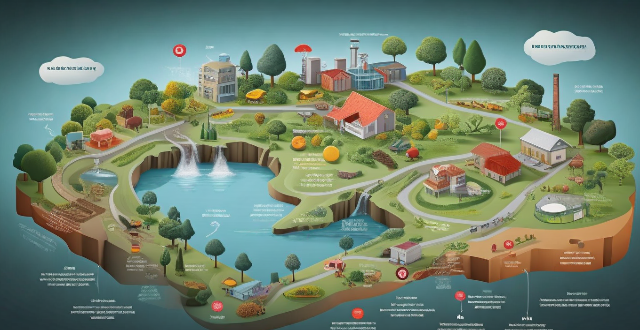
How does climate change affect agriculture and food security ?
Climate change significantly affects agriculture and food security by increasing extreme weather events, altering crop yields and quality, impacting livestock, and raising concerns about food access, affordability, and biodiversity loss. Adaptation and mitigation strategies such as sustainable farming practices, water management, genetic research, and policy initiatives are essential to build a resilient food system.
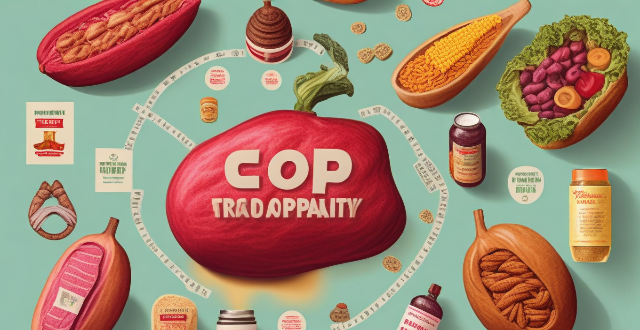
What is the significance of traceability in the food supply chain for food safety ?
Traceability in the food supply chain is crucial for food safety, enhancing transparency, facilitating recalls, improving quality control, supporting regulatory compliance, enabling better risk management, and promoting sustainable practices.
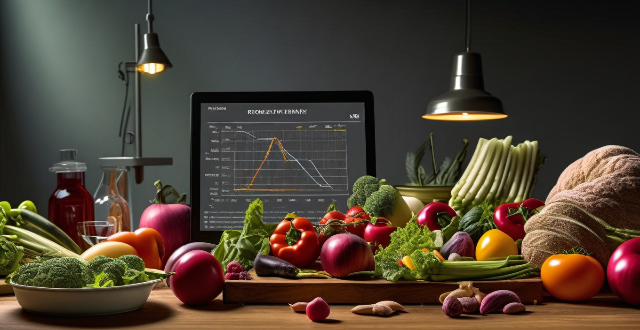
How has technology improved food safety monitoring and compliance ?
This article discusses how technology has played a crucial role in enhancing food safety measures. It covers traceability systems, sensor technology, data analytics, automation and machine learning, and blockchain technology. Traceability systems allow for the tracking of products from farm to table using barcodes, QR codes, and RFID tags. Sensors monitor various parameters that impact food safety, such as temperature, humidity, and chemical composition. Data analytics tools process vast amounts of collected data to identify patterns, trends, and potential risks. Automated systems reduce human error and increase efficiency in food processing plants, while machine learning algorithms enhance decision-making processes based on learned behaviors from past data. Blockchain offers a decentralized way to record transactions securely and transparently when applied to food supply chains. By leveraging these technological advancements, we can work towards a future where food safety concerns are minimized, benefiting both consumers and industry stakeholders alike.

How can schools improve their food safety standards ?
Improving food safety standards in schools is crucial for protecting the health of students and staff. Here are some ways that schools can enhance their food safety practices: 1. Implement a HACCP System 2. Train Staff on Food Safety 3. Use Proper Handling and Cooking Techniques 4. Maintain Cleanliness and Sanitation 5. Enforce Strict Ingredient Sourcing Policies 6. Establish Clear Policies for Illness Reporting 7. Conduct Regular Audits and Reviews
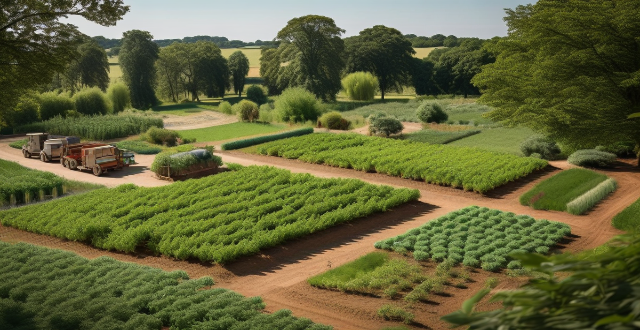
What strategies can be implemented to mitigate the effects of climate change on food systems ?
Strategies to Mitigate the Effects of Climate Change on Food Systems include sustainable agriculture practices, agroforestry and reforestation, climate-resilient crop breeding, livestock management, food waste reduction, policy and advocacy, and research and development. These efforts aim to build more resilient food systems capable of withstanding the challenges posed by climate change, ensuring food security for future generations.

What is the history behind the origin of street food ?
The origin of street food can be traced back to ancient times, with evidence of vendors selling food and drinks in public spaces in ancient Middle Eastern and Asian civilizations. Over the centuries, street food has evolved and diversified, reflecting changing social, economic, and cultural dynamics. In the Roman Empire, a well-developed system of food markets and street vendors sold a variety of dishes. During the Middle Ages, street food became more prevalent in Europe due to the growth of fairs and markets. In Renaissance Italy, street food became more sophisticated and diverse, with vendors selling pizza, pasta, and gelato. Early American settlers relied on street food for sustenance, while immigrants brought their own street food traditions with them. In recent decades, globalization has led to the spread of street food cultures around the world, and the rise of food trucks has revolutionized the industry. Today, street food continues to evolve and adapt to changing tastes and trends while preserving its rich heritage and diversity.
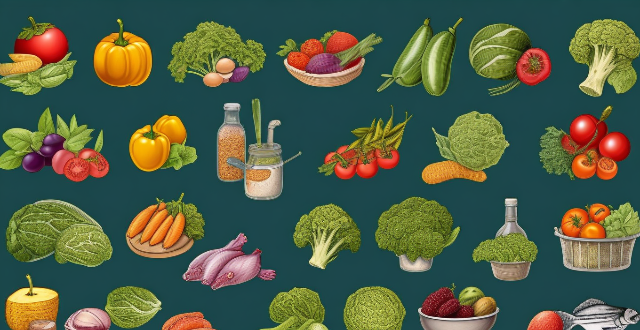
What is the significance of personal hygiene in food handling ?
Personal hygiene is crucial for food safety, public health protection, and maintaining quality in the food industry. It prevents cross-contamination, reduces disease transmission, and enhances food quality. Adherence to personal hygiene standards impacts regulatory compliance, consumer trust, and economic implications within the food industry.
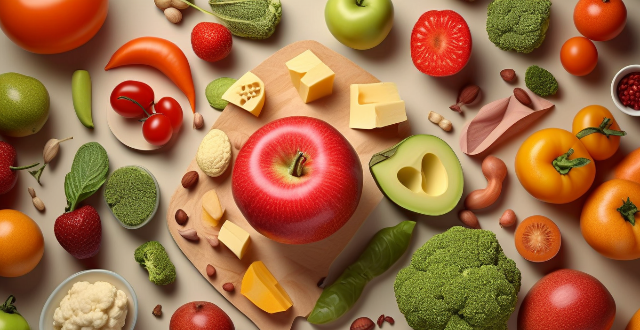
How important is composition in food photography ?
Composition is essential in food photography for creating visually appealing images. Techniques such as focusing on the subject, using negative space, incorporating leading lines, following the rule of thirds, and experimenting with color and contrast can enhance the visual appeal of food photographs.

How can I improve my diet to boost my immune system ?
Improving your diet is one of the best ways to boost your immune system. Here are some tips on how you can do that: ## Eat a Variety of Foods Eating a variety of foods ensures that you get all the essential nutrients your body needs. This includes fruits, vegetables, whole grains, lean proteins, and healthy fats. Aim for at least five servings of fruits and vegetables per day. ### Fruits and Vegetables - Apples - Bananas - Berries - Broccoli - Carrots - Spinach ### Whole Grains - Oats - Quinoa - Brown Rice ### Lean Proteins - Chicken breast - Fish (such as salmon or tuna) - Legumes (such as lentils or chickpeas) ### Healthy Fats - Avocados - Nuts (such as almonds or walnuts) - Seeds (such as chia or flaxseed) ## Stay Hydrated Drinking enough water is crucial for maintaining a healthy immune system. Aim for at least eight glasses of water per day, and more if you're active or it's hot outside. You can also stay hydrated by drinking herbal teas or eating water-rich foods like cucumbers, melons, and strawberries. ## Limit Processed Foods and Sugary Drinks Processed foods and sugary drinks can weaken your immune system by causing inflammation in your body. Try to limit these foods and drinks as much as possible, and opt for whole, nutrient-dense foods instead. ## Consider Taking Supplements If you're not getting enough vitamins and minerals from your diet, consider taking supplements. Some common supplements that may help boost your immune system include vitamin C, vitamin D, zinc, and probiotics. However, be sure to talk to your doctor before starting any new supplements.
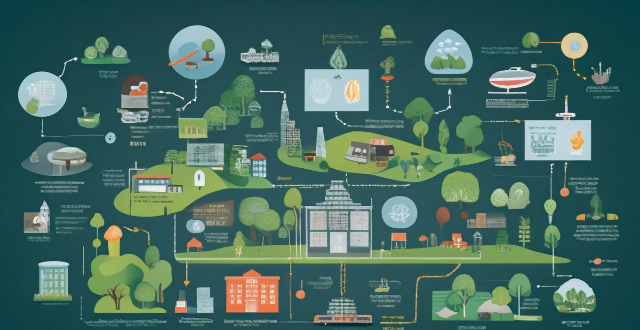
Can technology help improve food security in a changing climate ?
In the face of climate change, technology offers numerous solutions to enhance food production and distribution, contributing to global food security. Key areas where technology can make a significant impact include precision farming, genetic engineering, data analytics, water management, digital infrastructure, supply chain optimization, urban agriculture, and policy support. By leveraging these technological advancements, we can mitigate the adverse effects of climate change on agriculture and ensure a stable and sustainable food system for all.
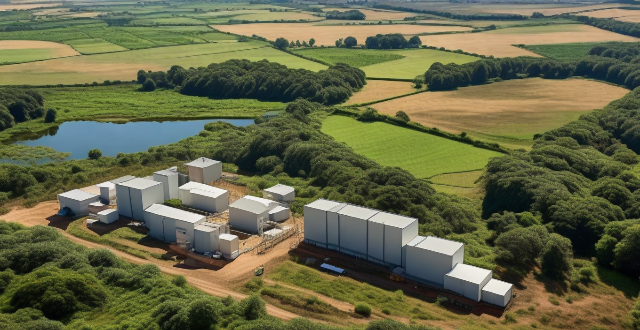
How does climate variability impact agriculture and food security ?
Climate variability significantly impacts agriculture and food security by affecting crop yields, livestock production, and the availability and accessibility of food. Direct impacts include changes in temperature, precipitation, extreme weather events, and CO₂ levels, while indirect impacts involve pest and disease outbreaks, water resource availability, soil quality, ecosystem services, market prices and trade, food accessibility and nutrition, and farmer livelihoods. Mitigation and adaptation strategies such as crop diversification, improved water management, breeding resilient crops, sustainable soil management, early warning systems, insurance and safety nets, policy support, and international cooperation are essential for building a climate-resilient food system.

How are food safety regulations enforced by governments ?
Governments around the world enforce food safety regulations through various methods, including legislation and policy development, inspection and compliance checks, licensing and certification, education and training, penalties and enforcement actions, public communication, and international cooperation. These efforts aim to protect consumers from harmful substances and contaminants in food products while promoting fair trade practices among producers and retailers.
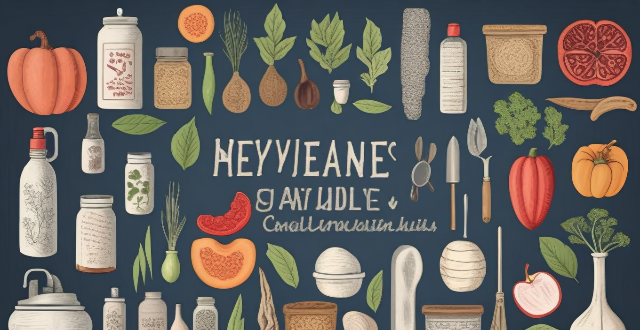
What are the key principles of food safety ?
The text outlines the key principles of food safety, which include cleanliness, avoiding cross-contamination, thorough cooking, proper storage, and using safe water and ingredients. By following these guidelines, individuals can reduce the risk of foodborne illnesses and ensure that their meals are safe for consumption.

What steps can restaurants take to ensure the safety of their food ?
Food safety is a critical aspect of the restaurant industry, involving handling, preparing, and storing food in ways that prevent contamination and foodborne illnesses. Restaurants can ensure food safety by following these steps: proper handling and storage, cooking and preparation techniques, maintaining cleanliness and sanitation, implementing food safety training and policies, and working with reliable suppliers and implementing quality control measures. By following these steps, restaurants can minimize the risk of foodborne illnesses and provide their customers with safe and delicious meals.
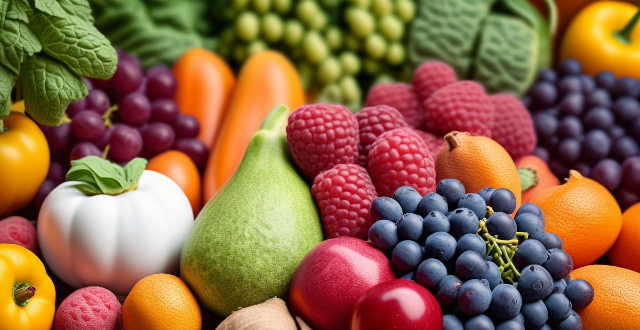
Is it true that certain superfoods can boost your immune system ?
Incorporating superfoods like citrus fruits, garlic, ginger, spinach, yogurt, nuts and seeds, blueberries, and turmeric into your diet can help support immune health by providing key nutrients such as vitamin C, vitamin D, zinc, protein, and antioxidants. These foods offer a range of benefits including boosting white blood cell production, reducing inflammation, supporting digestive health, and protecting against oxidative stress. However, it's important to maintain a balanced diet and lifestyle for overall immune support.

What potential challenges might we face when attempting to colonize another star system ?
The text discusses the potential challenges in colonizing another star system, including long-distance travel, habitability of new planets, technological hurdles, sociopolitical considerations, health and medical concerns, and economic sustainability. It emphasizes the need for international cooperation, cutting-edge research, and innovative solutions to ensure the success and sustainability of extraterrestrial colonies.
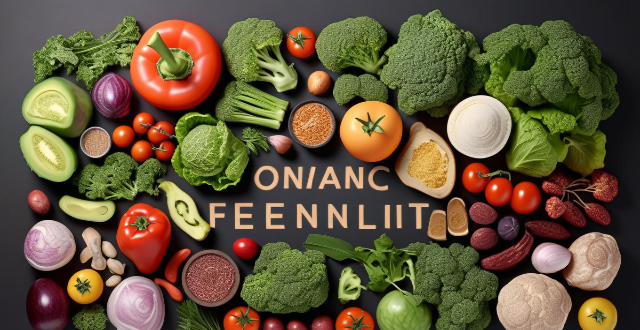
Can eating organic food prevent diseases ?
Eating organic food may offer some potential benefits for disease prevention, such as reduced exposure to pesticides and chemicals, higher antioxidant levels, and better nutrient content. However, the overall evidence supporting its ability to prevent diseases is limited, and other factors influencing disease risk should also be considered when making dietary choices. It is important to prioritize a balanced and varied diet rich in fruits, vegetables, whole grains, lean proteins, and healthy fats while minimizing intake of processed foods and sugary beverages.
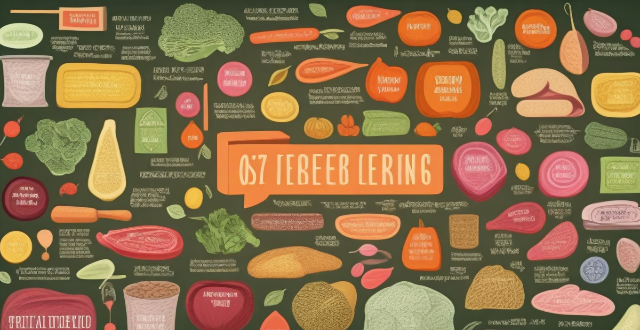
How does food labeling contribute to food safety ?
Food labeling is crucial for food safety as it provides consumers with essential information. It includes ingredient lists, nutritional information, expiration dates, manufacturing details, storage instructions, certification marks, allergy warnings, country of origin, precautionary statements, and environmental impact information. Proper labeling practices help identify ingredients, understand nutritional values, recognize potential risks, and make informed decisions about food consumption.
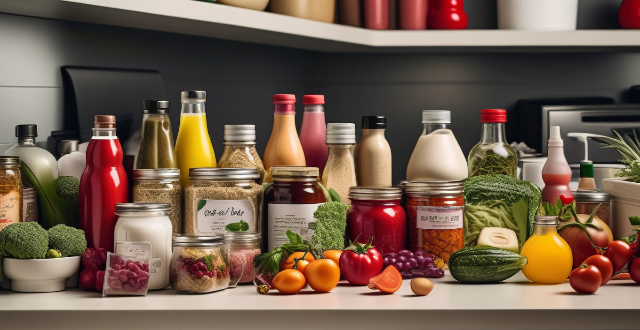
How can I reduce food waste in my kitchen ?
To reduce food waste in your kitchen, you can plan meals ahead of shopping, shop smart by making a list and buying fresh produce, store foods properly using airtight containers, understand expiration dates, preserve food through techniques like freezing and dehydrating, get creative with leftovers, practice portion control, and educate yourself on the environmental impact of food waste.

How do street food vendors keep their food safe and hygienic ?
Street food vendors play a crucial role in providing affordable and delicious meals to millions of people worldwide. However, ensuring that their food is safe and hygienic can be challenging due to various factors such as limited space, lack of proper equipment, and unpredictable weather conditions. In this article, we will discuss some effective ways street food vendors can maintain the safety and cleanliness of their food.

Is organic food healthier than non-organic food ?
The debate over whether organic food is healthier than non-organic food has been ongoing for decades. While some argue that organic food offers more nutritional benefits and is better for the environment, others believe that the differences are negligible and that non-organic food can be just as healthy. In this article, we will explore both sides of the argument and try to answer the question: is organic food healthier than non-organic food? Arguments in favor of organic food include nutritional benefits, pesticide reduction, and environmental impact. Organic farming practices focus on building healthy soil and growing strong plants, which results in produce that is richer in nutrients like vitamins, minerals, and antioxidants. Additionally, organic food is grown without the use of synthetic pesticides and fertilizers, reducing the risk of harmful chemicals ending up in our food supply. Finally, organic farming practices promote biodiversity, reduce pollution, and help preserve natural resources. Arguments against organic food include minimal nutritional differences, low pesticide residues, and higher cost. While some studies have found that organic food is more nutritious than non-organic food, other research suggests that the differences are minimal. The levels of pesticides found in non-organic produce are generally well below what is considered safe by regulatory agencies, and washing produce thoroughly can further reduce pesticide residues. However, one of the biggest drawbacks of organic food is its higher cost compared to non-organic options. Ultimately, the decision of whether to choose organic or non-organic food depends on personal preference and individual circumstances. If you prioritize nutrition, reducing your exposure to pesticides, and supporting environmentally friendly farming practices, then organic food may be the way to go. However, if you are concerned about cost or believe that the nutritional differences between organic and non-organic food are minimal, then non-organic options may be suitable for you.

How can consumers check if their food is safe to eat ?
Consumers can check if their food is safe to eat by checking expiration dates, looking for signs of spoilage, reading labels carefully, practicing proper food handling, and using a food safety app.

How do you safely eat street food while traveling ?
Eating street food while traveling can be a delicious and authentic way to experience local cuisine. However, concerns about hygiene and food safety can make some travelers hesitant. To safely enjoy street food, consider these tips: 1. Observe hygiene practices at the stall, such as cleanliness and food preparation methods. 2. Choose popular stalls where food turnover is high and locals are eating. 3. Start with small portions to test your tolerance for new flavors. 4. Be selective with proteins, avoiding raw or undercooked meats and seafood. 5. Drink only bottled beverages and avoid tap water. 6. Use common sense; if something doesn't look or smell right, move on. 7. Have hand sanitizer ready and pack wet wipes for cleaning utensils. 8. Clearly communicate any allergies or dietary restrictions in the local language. 9. Enjoy the experience but don't overdo it; pace yourself and maintain a balanced diet. By following these guidelines, you can minimize risks and fully enjoy the authentic culinary experiences that travel offers.

What are the health benefits of eating street food ?
Eating street food can have several health benefits, including exposure to a wide range of flavors, nutrient-dense options, portion control, and cultural experiences. It's important to choose wisely and prioritize cleanliness and food safety when selecting street food vendors.

What is the difference between natural and organic food ?
Difference Between Natural and Organic Food Natural food is minimally processed with no artificial additives, while organic food follows strict production standards without synthetic pesticides or GMOs. Organic farming promotes soil health and biodiversity, offering potential environmental benefits.
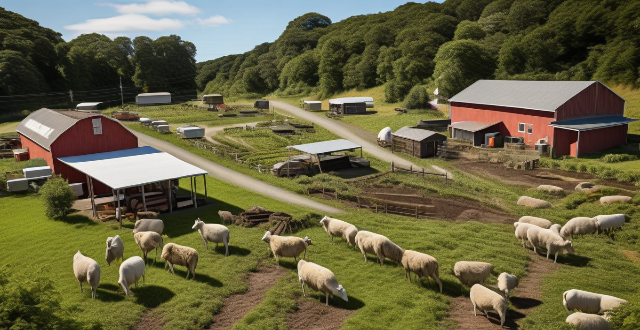
How might climate-induced natural disasters, such as droughts and floods, impact global food distribution ?
Climate-induced natural disasters significantly impact global food distribution by causing crop failures, livestock losses, and infrastructure damage. Droughts and floods reduce water availability for crops or wash away topsoil, leading to reduced yields or complete crop failures. Examples include wheat, corn, and rice production disruptions in major producing regions. Floods and droughts also lead to the loss of livestock like cattle, poultry, and sheep, affecting meat, dairy, and egg supplies. Infrastructure damage such as roads, bridges, ports, and storage facilities disrupts the supply chain, making it difficult to transport and store food. Understanding these impacts is crucial for preparing and mitigating their effects on food systems.
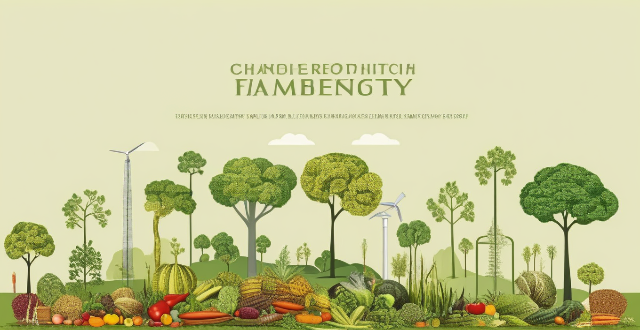
What are the long-term implications of climate change for global food trade and market stability ?
Climate change is expected to impact global food production, trade, and market stability significantly. Reduced crop yields, unpredictable harvests, decreased livestock productivity, increased disease prevalence, shifting production zones, and increased competition for resources are some of the long-term implications. These changes can lead to price volatility, increased vulnerability to food insecurity, and economic challenges for farmers and consumers. Addressing these challenges requires a collaborative effort from governments, international organizations, and stakeholders across the food system to develop strategies that promote resilience and adaptive capacity in the face of climate change.

What are the top food festivals around the world ?
Food festivals are a celebration of culinary delights, bringing together food enthusiasts from all walks of life. Here is a list of some of the top food festivals around the world: 1. Tokyo Ramen Festival (Japan) 2. Sziget Festival (Hungary) 3. Salon du Chocolat (France) 4. Taste of Sydney (Australia)